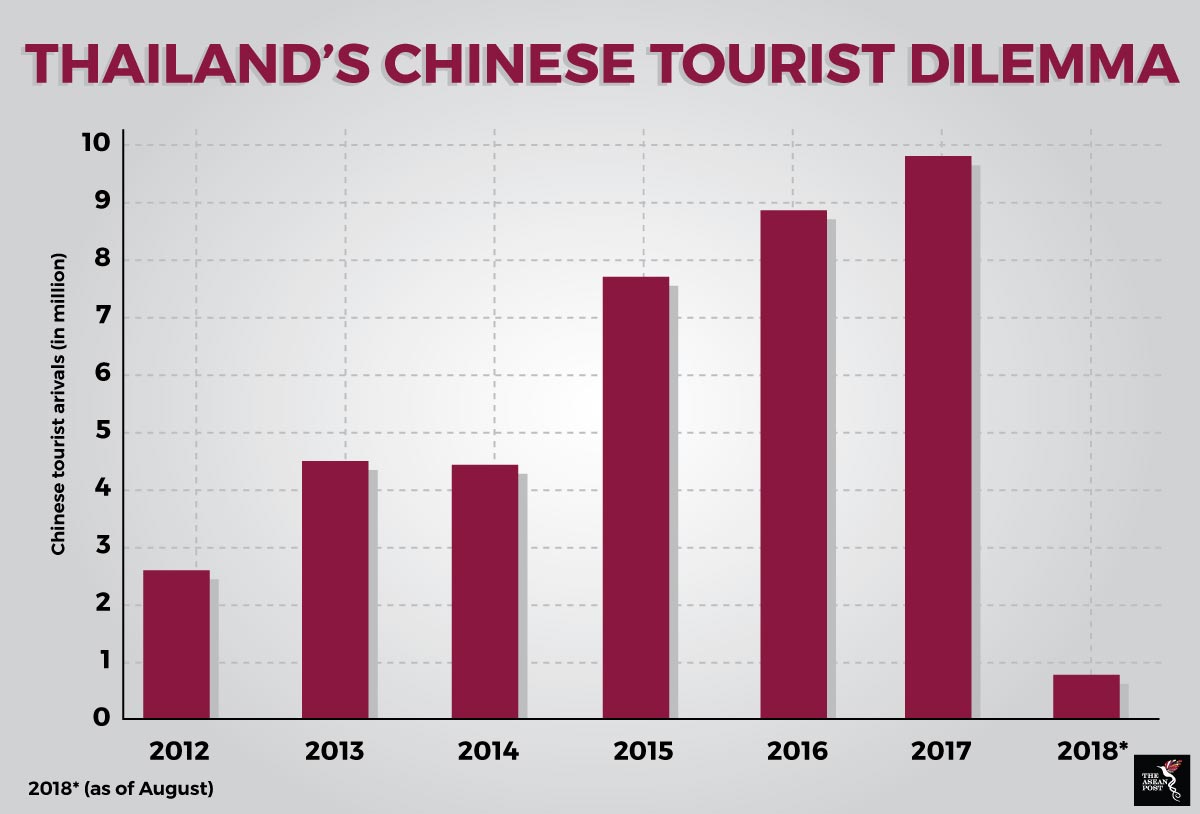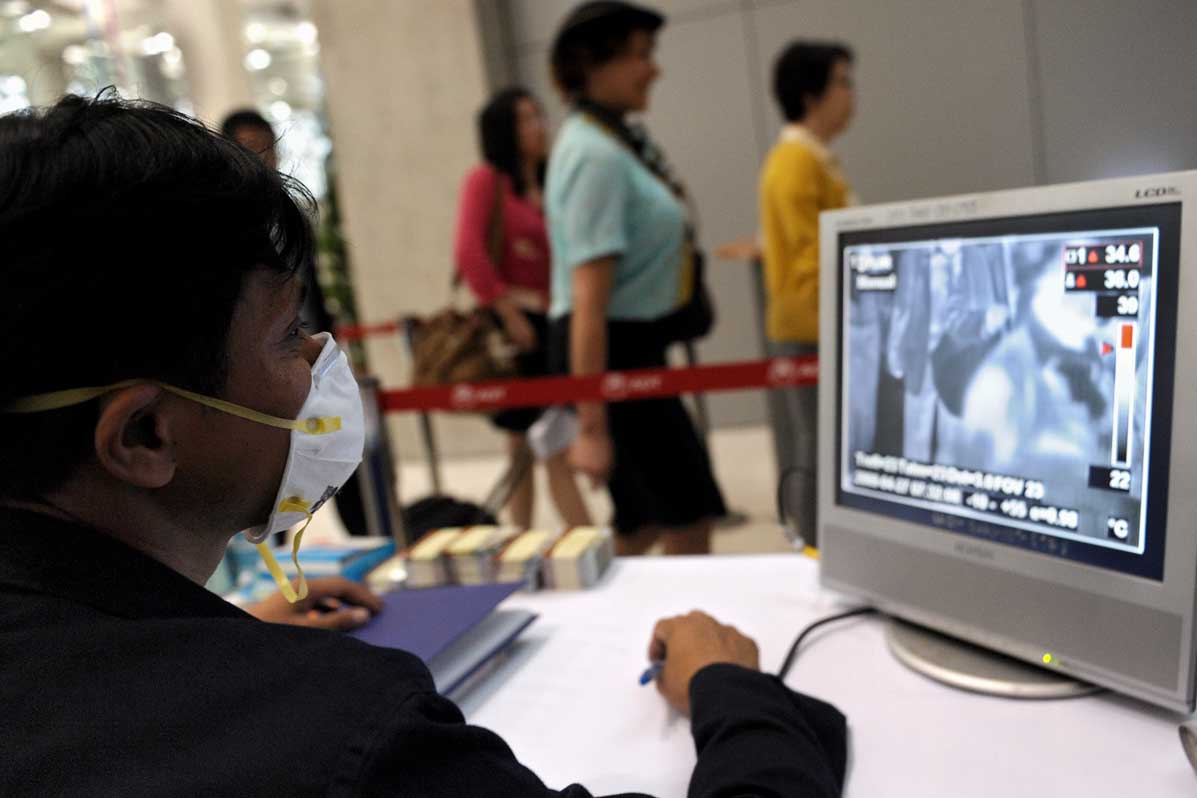Yesterday, news in Thailand revealed that strict inspections of processed pork products from overseas will be kept in place in a bid to stave off an outbreak of African swine fever, especially from China. This came after several samples of sausages confiscated from Chinese tourists entering Thailand were found to have a viral strain of African swine flu.
The Department of Livestock Development also invited various agencies, including the Food and Drug Administration (FDA), the Customs Department, the National Institute of Animal Health, as well as university academics to seek closer cooperation on monitoring diseases in the country's pig population. Thailand has the biggest pork industry in ASEAN, with over 22 million pigs and 1.2 million sows.
Pigs aside, the discovery of African swine flu in the pork sausages being brought into the country should sound the alert as far as bringing in more tourists from China goes. Considering the fact that ASEAN and China have pledged to further develop their relations to a new high by adopting the China-ASEAN Strategic Partnership Vision 2030 only last month, all ASEAN member countries should work to tighten security especially when it comes to Chinese from the mainland coming into the country.
Neighbourly advice
In February last year, a travel operator in Malaysia raised concerns over the country’s security in reaction to news that the government was opening a visa processing centre in Xiamen, China, in a move to attract tourists from Fujian province.
Syed Mohd Razif Yassin, CEO of the Sutra Travel Management group of companies, urged the government to ensure that “uninvited guests” would be weeded out. He noted that Putrajaya was aggressive in its bid to attract Chinese tourists, but he said it must ensure it wasn’t doing so at the expense of national security.
“We have to look at the safety of the country. We can’t just bring in any Tom, Dick and Harry who might create more social problems or criminal cases,” he told local media.
The same would ring true for other ASEAN countries who hope to bring in more Chinese tourists such as Indonesia and Thailand.
Tourism contributes a significant amount to Thailand’s gross domestic product (GDP). According to the Tourism and Sports Ministry, tourism contributed 17.7 percent to Thailand’s GDP in 2016 and 16.7 percent in 2015. Meanwhile, the World Travel and Tourism Council says tourism accounted for 10.4 percent of global GDP and 313 million jobs, or 9.9 percent of total employment in 2017.
From 2012 to 2017, the largest number of tourist arrivals to Thailand have come from China. In 2012, there were 2.7 million tourist arrivals, 4.6 million in 2013 and 2014, 7.9 million in 2015, 8.7 million in 2016, and 9.8 million in 2017.

Source: Tourism and Sports Ministry
Thailand’s tourism sector has come under the spotlight following a sharp drop in the number of people visiting the country. Official statistics in August indicated that travellers from China slid 12 percent, the biggest drop in more than a year, keeping the overall pace of visitor growth near a 16-month low. This year, however, things changed.
Perhaps one of the biggest reasons for the drop in Chinese tourists was a tour boat accident off Phuket in July that killed 46 of the 101 passengers on board including 86 tourists. All but two of the tourists were from China.
Then, in late September, a video went viral of an airport guard apparently punching a Chinese tourist at Bangkok's Don Mueang airport. Sunsern Kaewkumnerd, a spokesman for the government, was reported as saying that Prime Minister Prayut Chan-o-cha was "upset" by the incident.
"The prime minister thought that even though the tourist could not produce documents to reaffirm his accommodation in Thailand, refused to stay in a detention room, and acted inappropriately with officials, still officials must compose themselves and treat him in line with international practice," Sunsern said in a message to the media.
Bringing in more tourists
Considering the fact that tourism is such a big part of Thailand’s economy and Chinese tourists contributing perhaps the largest brunt, there is little reason to doubt that this drop in tourists from China would only increase a sense of zealousness in attempting to invite Chinese tourists back into the country.
Only last month, reports revealed that Thailand had beefed up its cooperation with Alibaba co-founder and chairman Jack Ma to help promote the country’s tourism online in the hope of luring more Chinese to take trips to Thailand.
Following discussions with the Chinese billionaire in Shanghai, Thai Deputy Prime Minister Somkid Jatusripitak had said the Alibaba chief had acceded to the Thai request to help promote tourism through its online commerce empire. Thailand created a 20-second video promoting the country’s tourism as part of Alibaba’s online promotional campaign and about 800 million Chinese were expected to view this online campaign.
But in its zealousness to bring in more tourists in China, Thailand – as well as other ASEAN countries who hope to do the same – would be wise in ensuring that security, whether it be health security or national security or otherwise, is not being given a backseat.
Related articles:
Tourism’s influence on Thai politics
Thailand’s Chinese tourist dilemma
